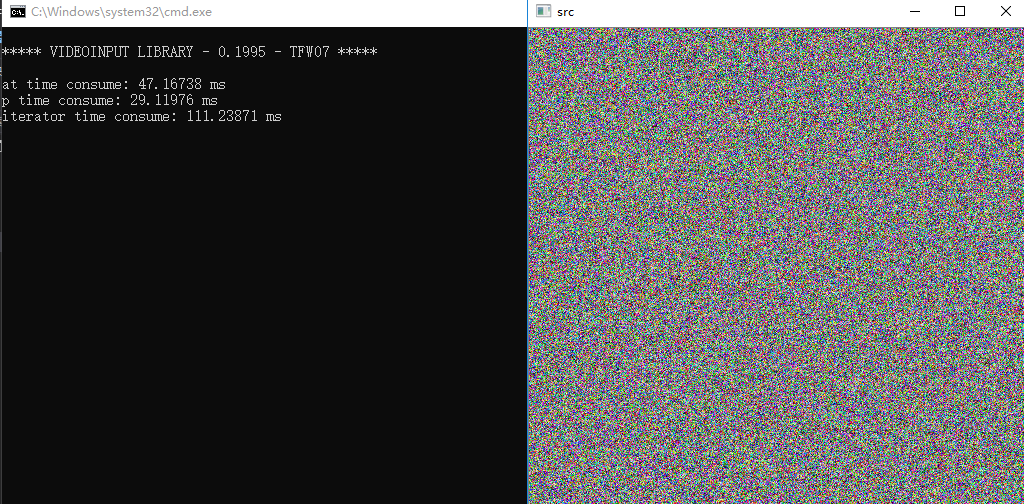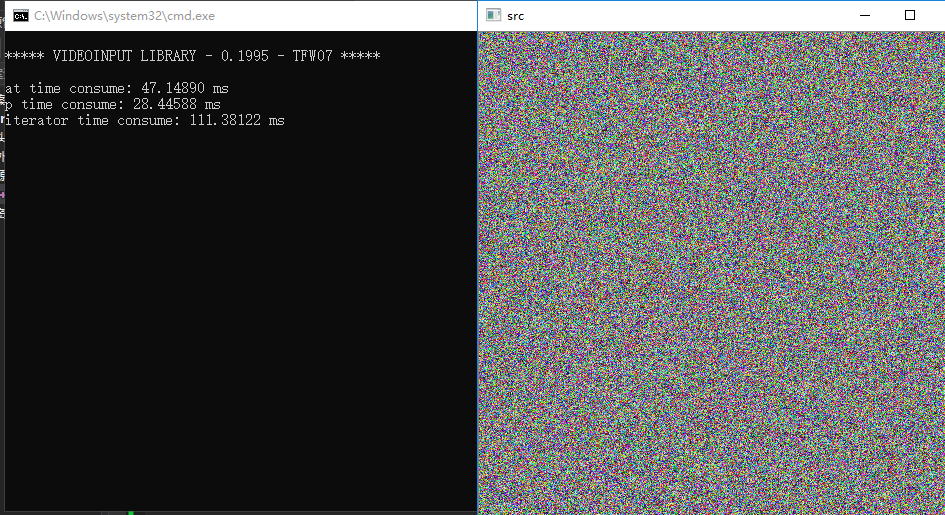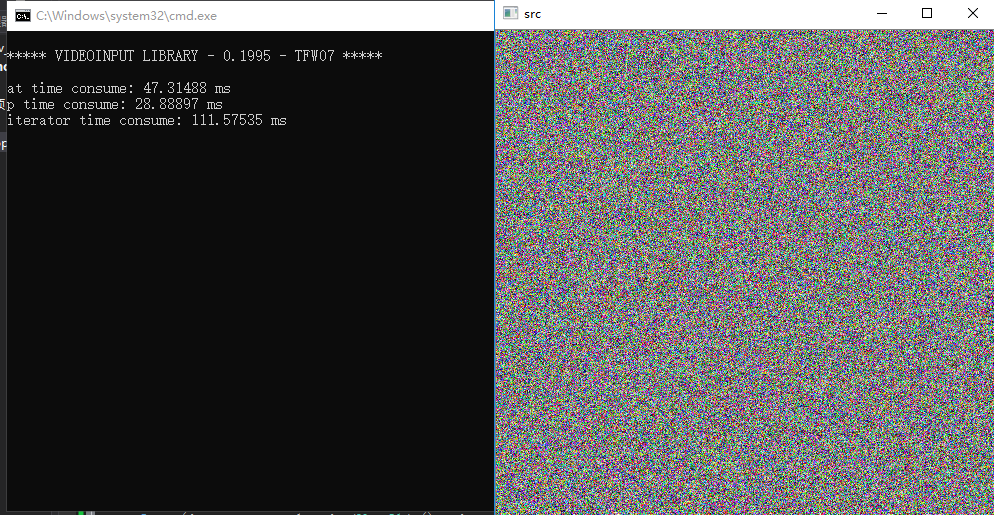1, How to calculate efficiency
To calculate the efficiency of a program, you need to get the time it takes for the program to run to its current location
Two simple timing functions getTickCount() and getTickFrequency() are provided in opencv
double t = (double)getTickCount();
// do something ...
t = ((double)getTickCount() - t)/getTickFrequency();
Use as above
2, Code test
Code implementation
Create a 500 * 500 3-channel image, write random number test program to 3-channel continuously, and then test efficiency under the same conditions
#include <opencv2/opencv.hpp>
#include <iostream>
using namespace cv;
using namespace std;
RNG rng(1234);
void p_RW_Pixel(Mat &src){
for (int row = 0; row < src.rows; row++){
Vec3b * cur = src.ptr<Vec3b>(row); // Get a pointer to the current row
for (int col = 0; col < src.cols; col++){
if (src.channels() == 3){
cur[col][0] = rng.uniform(0, 255) % 255; // b assigned random color
cur[col][1] = rng.uniform(0, 255) % 255;
cur[col][2] = rng.uniform(0, 255) % 255;
}
}
}
}
void iter_RW_Pixel(Mat &src){
MatIterator_<Vec3b> iter;
for (iter = src.begin<Vec3b>(); iter != src.end<Vec3b>(); iter++){
(*iter)[0] = rng.uniform(0, 255) % 255;
(*iter)[1] = rng.uniform(0, 255) % 255;
(*iter)[2] = rng.uniform(0, 255) % 255;
}
}
void at_RW_Pixel(Mat &src){
for (int row = 0; row < src.rows; row++){
for (int col = 0; col < src.cols; col++){
if (src.channels() == 3){
src.at<Vec3b>(row, col)[0] = rng.uniform(0, 255) % 255;
src.at<Vec3b>(row, col)[1] = rng.uniform(0, 255) % 255;
src.at<Vec3b>(row, col)[2] = rng.uniform(0, 255) % 255;
}
}
}
}
int main01(int argc, char **argv){
Mat src = Mat::zeros(500, 500, CV_8UC3);
double t_start = static_cast<double>(getTickCount()); // Program start time
// The middle time is the time to test the program
p_RW_Pixel(src);
//iter_RW_Pixel(src);
//at_RW_Pixel(src);
double t_end = static_cast<double>(getTickCount());// End time of program
double timeConsume = (t_end - t_start) / getTickFrequency();
printf("time consume: %.5f ms\n", timeConsume*1000);
imshow("src", src);
waitKey(0);
return 0;
}
int main(int argc, char **argv){
Mat src = Mat::zeros(500, 500, CV_8UC3); // Create a 500 * 500 3-channel image
double t_start, timeConsume;
// The efficiency of calculating at function
t_start = static_cast<double>(getTickCount()); // Program start time
// The middle time is the time to test the program
at_RW_Pixel(src);
timeConsume = ((double)getTickCount() - t_start) / getTickFrequency();
printf("at time consume: %.5f ms\n", timeConsume * 1000);
// Calculate the efficiency of the pointer
t_start = static_cast<double>(getTickCount()); // Program start time
// The middle time is the time to test the program
p_RW_Pixel(src);
timeConsume = ((double)getTickCount() - t_start) / getTickFrequency();
printf("p time consume: %.5f ms\n", timeConsume * 1000);
// Calculate the efficiency of iterator
t_start = static_cast<double>(getTickCount()); // Program start time
// The middle time is the time to test the program
iter_RW_Pixel(src);
timeConsume = ((double)getTickCount() - t_start) / getTickFrequency();
printf("iterator time consume: %.5f ms\n", timeConsume * 1000);
imshow("src", src);
waitKey(0);
return 0;
}


